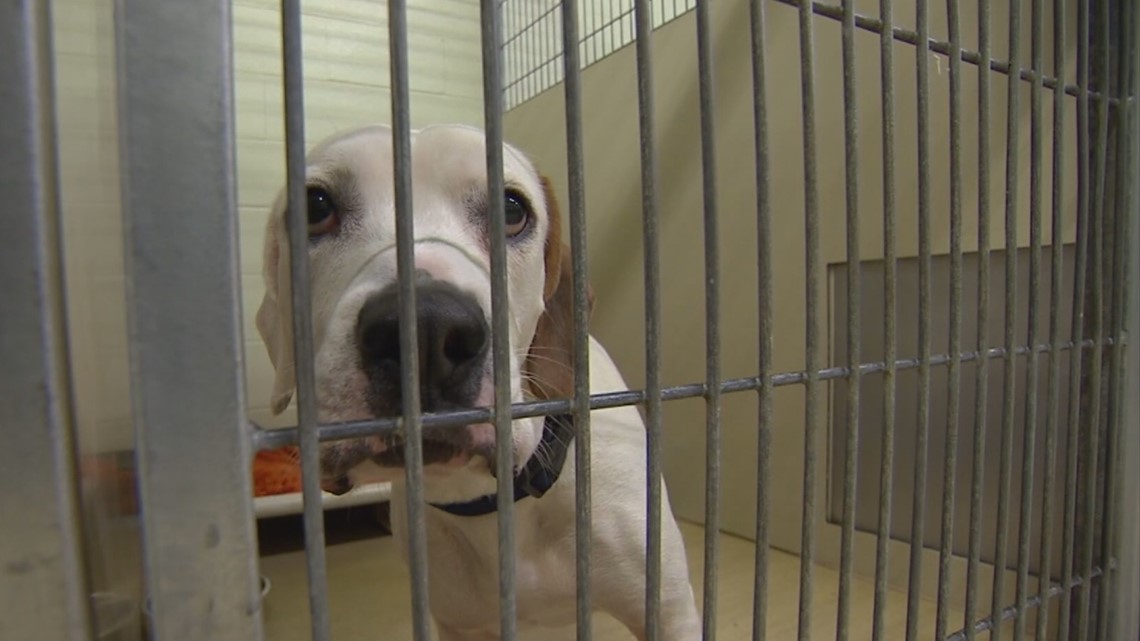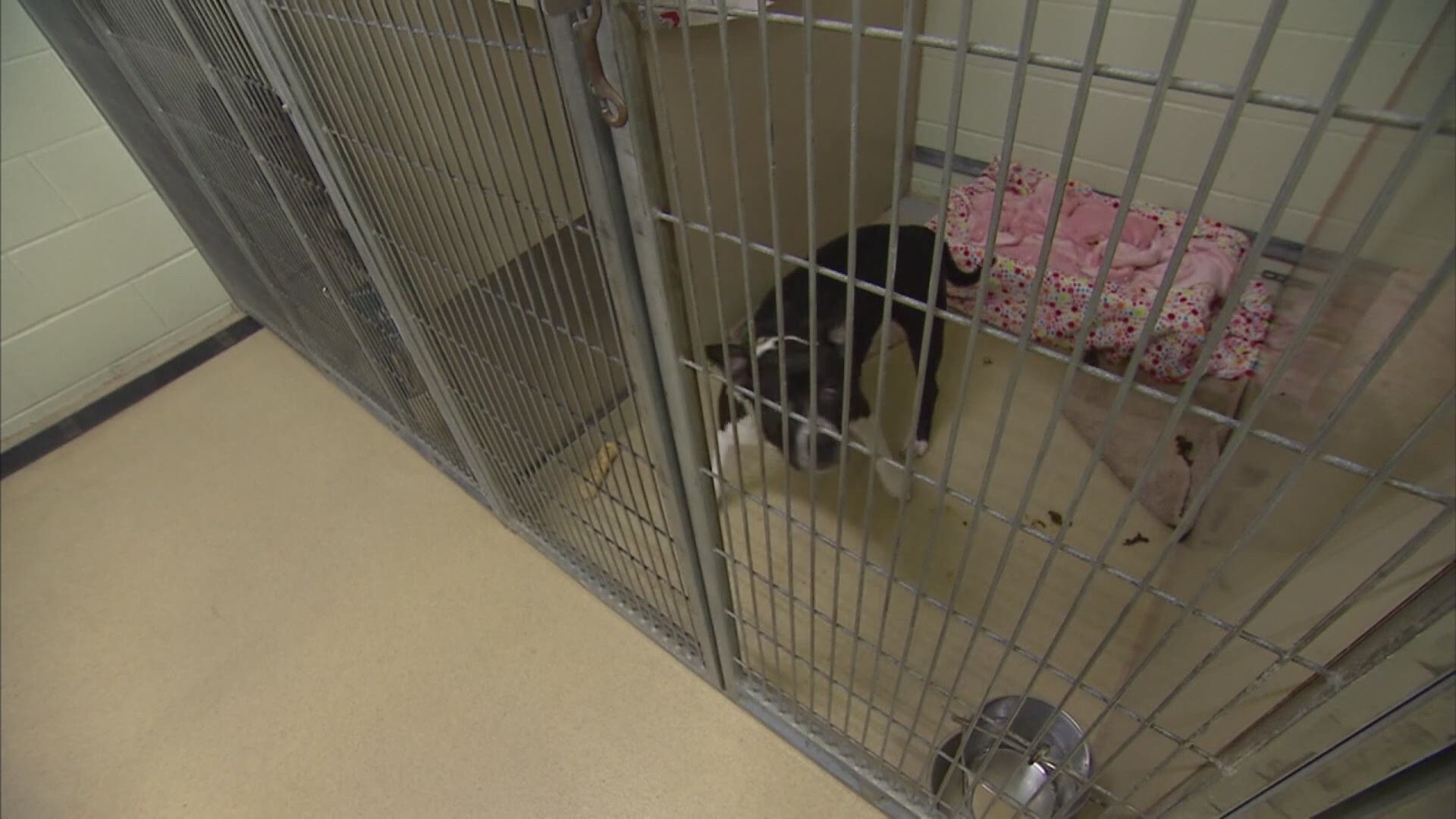NOBLESVILLE, Ind. — Just because they’re animals doesn’t mean the dogs and cats at the Humane Society for Hamilton County haven’t felt the effects of the pandemic.
“They’re silent victims of this, as well,” said Rebecca Stevens, humane society CEO and president.
The shelter, which has more than 230 animals, has lost $250,000 of its approximately $2 million annual operating budget.
“It’s a big hit and, like I said, lives are at stake,” Stevens said.
That includes Libby, an older, hairless Chihuahua who’s blind and hard of hearing. She lives with Stevens.
“There’s a face to the situation that we’re in right now,” said Stevens.
Animals like Libby, still in search of homes, need medical care that the shelter pays for through its "Survivor" program. And there’s the basic daily care of the animals, an effort supported through corporate sponsors and three big shelter fundraisers each year.
Some of that corporate money has gone away during the pandemic, as have some of the fundraisers.
One of those fundraisers, "Wine, Wags and Whiskers," has already been canceled. Another, a 5K event called Woofstock is happening this weekend but has been scaled back because of coronavirus. The status of "Tinsel and Tails," set for November, is still up in the air.
“This is huge for us. Just those three events represent about $400,000,” Stevens explained.
The Indiana University Lilly Family School of Philanthropy studies how people give and to whom. They say it’s too soon to study the cost of the virus on fundraising efforts, but say that two-thirds of Americans give when there’s a disaster somewhere.
But what happens when the devastation hits everywhere?


“The whole country, the whole world is the region that’s affected by this disaster, so it’s very unprecedented, very uncharted territory,” said Dr. Patrick Rooney, a professor of economics and philanthropic studies and the executive associate dean for academic programs at the Lilly Family School of Philanthropy.
According to Rooney, some non-profits that have shifted fundraising efforts online are doing better than ones that rely more heavily on events.
“There’s a very uneven effect from charity to charity,” said Rooney, adding “People don’t give if they’re not asked.”
Stevens is asking on behalf of the hundreds of animals at the shelter still looking for homes.
“Literally, lives are at stake, so however you can help, we encourage you to,” said Stevens.
The 5K is taking walk-up registrations the morning of the race. If you can’t attend, there’s also a virtual fundraising option online.

